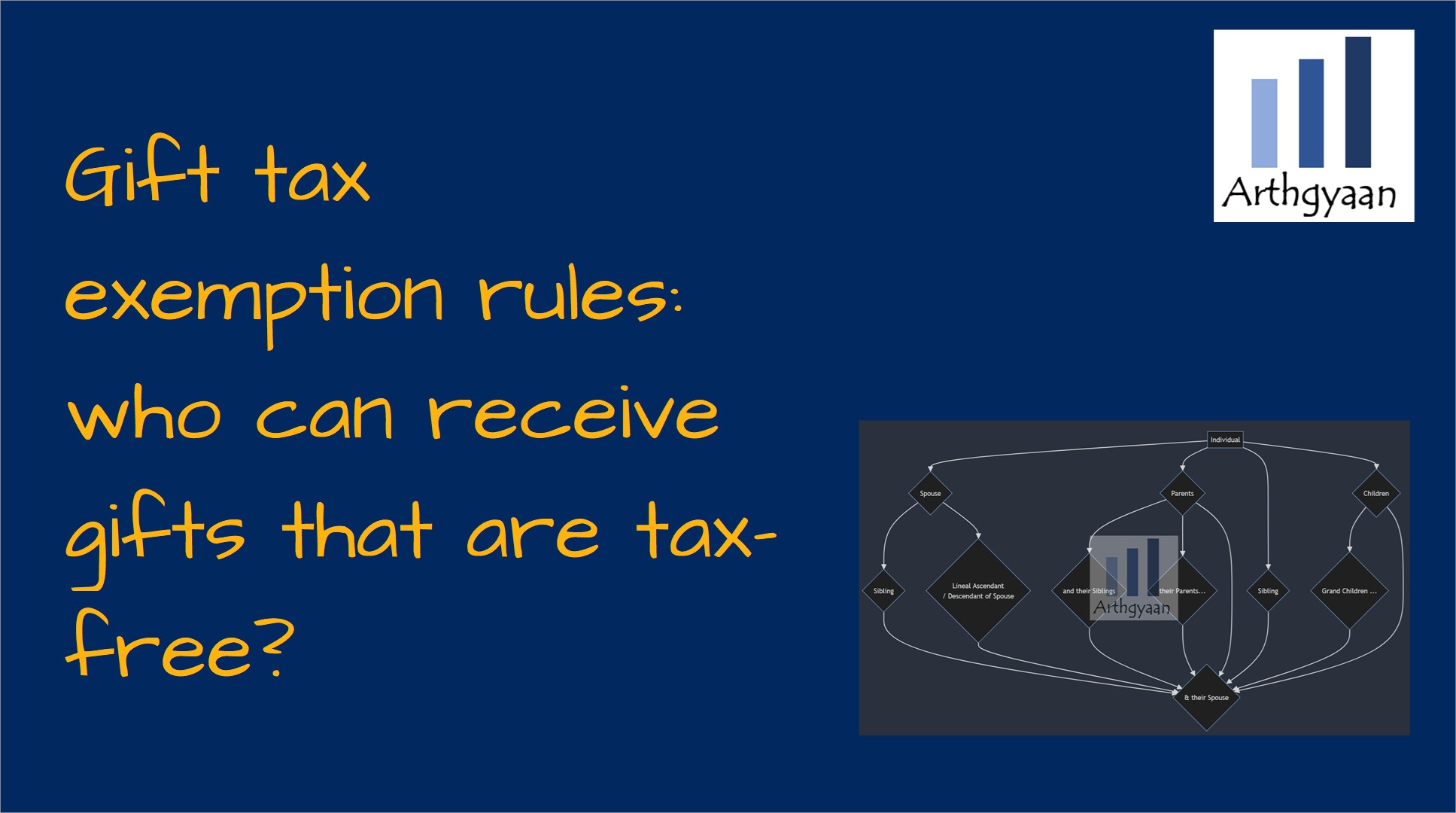Gift tax exemption rules: who can receive gifts from relatives that are tax-free?
This article tells you who all can receive gifts of cash, shares, property or any other assets from you without paying any gift tax.
This article tells you who all can receive gifts of cash, shares, property or any other assets from you without paying any gift tax.

This article is a part of our detailed article series on the concept of gifting assets and investing in the name of your relatives. Ensure you have read the other parts here:
This article discusses a common tax saving technique of investing in the name of parents to save tax. We also look at the pros and cons.
This article explains the concept of income clubbing. It shows how tax saving by investing in the name of family members may not save tax.
This article covers the mechanics for NRIs to regularly send or make one-time large gifts of money to parents in India.
A gift is when you give
to anyone.
The income tax department wants the receiver (called donee), and not the giver (donor), to pay taxes on receiving the gift called gift tax. This rule exists since without it, capital gains or interest income stops becoming taxable. For example, to pay for a foreign trip, you gift your travel agent 5 lakhs in mutual fund units and they gift that to the airline to buy tickets. The government misses out on taxes.
That being said, gifts to relatives is tax-free in the hands of the receiver as long as certain conditions are met.
Source: https://incometaxindia.gov.in/Tutorials/18.%20Tax%20treatment%20of%20gifts.pdf
How to interpret the diagram:
A few worked out examples:
One exception is gifts received in the case of marriage are tax-free. The opposite exception is that gifts from non-members to HUF is tax-free only below ₹50,000/year.
Just because there is no gift-tax on the gift to a relative, it does not mean that there is no tax on this amount after that. Any income via interest, dividend, rent or capital gains becomes taxable in the usual way in the hands of the owner of the assets who will be the receiver of the gift. If the receiver does not have income, clubbing with income of the donor might apply.
If there is capital gains, the original acquisition date and price will be applicable. For example, a father bought 100 units of a mutual fund for ₹50/unit in 2015 and in 2023 gifts them to a major child who then sells it for ₹100/unit. In this case, purchase price and date will be the same as the numbers in 2015.
A simple gift deed that captures the details of the gift, the donor and donee/receiver details and the fact that no consideration is paid, is a good practice. It provides proof that should be tax free in case of an income tax audit.
If the items being gifted are shares or mutual funds, or anything that has a purchase date and price, include those details in the deed for making it easy to calculate capital gains in the future.

Published: 18 December 2025
8 MIN READ
1. Email me with any questions.
2. Use our goal-based investing template to prepare a financial plan for yourself.Don't forget to share this article on WhatsApp or Twitter or post this to Facebook.
Discuss this post with us via Facebook or get regular bite-sized updates on Twitter.
More posts...Disclaimer: Content on this site is for educational purpose only and is not financial advice. Nothing on this site should be construed as an offer or recommendation to buy/sell any financial product or service. Please consult a registered investment advisor before making any investments.
This post titled Gift tax exemption rules: who can receive gifts from relatives that are tax-free? first appeared on 08 Nov 2023 at https://arthgyaan.com